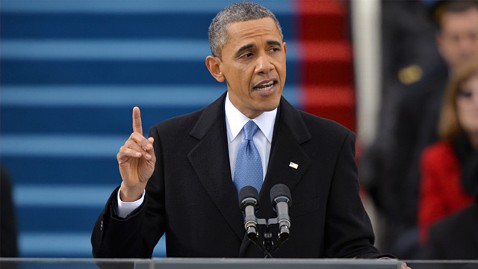Defense Secretary Leon Panetta will lift a longstanding ban on women serving in combat, according to senior defense officials.
The services have until this May to come up with a plan to implement the change, according to a Defense Department official.
That means the changes could come into effect as early as May. The services will have until January 2016 to complete the implementation of the changes.
The military services will also have until Janurary 2016 to seek waivers for certain jobs -- but those waivers will require a personal approval from the secretary of defense and will have to be based on rationales other than the direct combat exclusion rule.
The move to allow women in combat, first reported by the Associated Press, was not expected this week, although there has been a concerted effort by the Obama administration to further open up the armed forces to women.
The Joint Chiefs of Staff unanimously recommended in January to Secretary Panetta that the direct combat exclusion rule should be lifted.
"I can confirm media reports that the secretary and the chairman are expected to announce the lifting of the direct combat exclusion rule for women in the military," said a senior Defense Department official. "This policy change will initiate a process whereby the services will develop plans to implement this decision, which was made by the secretary of defense upon the recommendation of the Joint Chiefs of Staff."
Chairman of the Joint Chiefs Gen. Martin Dempsey sent Panetta a memo earlier this month entitled, "Women in Service Implementation Plan."
"The time has come to rescind the direct combat exclusion rule for women and to eliminate all unnecessary gender-based barriers to service," the memo read.
Adek Berry/AFP/Getty Images
"To implement these initiatives successfully and without sacrificing our warfighting capability or the trust of the American people, we will need time to get it right," he said in the memo, referring to the 2016 horizon.
Women have been officially prohibited from serving in combat since a 1994 rule that barred them from serving in ground combat units. That does not mean they have been immune from danger or from combat.
As Martha Raddatz reported in 2009, women have served in support positions on and off the frontlines in Iraq and Afghanistan, where war is waged on street corners and in markets, putting them at equal risk. Hundreds of thousands of women deployed with the military to those two war zones over the past decade. Hundreds have died.
READ MORE: Female Warriors Engage in Combat in Iraq, Afghanistan
Woman have been able to fly combat sorties since 1993. In 2010, the Navy allowed them on submarines. But lifting restrictions on service in frontline ground combat units will break a key barrier in the military.
READ MORE: Smooth Sailing for First Women to Serve on Navy Submarines
READ MORE: Female Fighter Pilot Breaks Gender Barriers
Panetta's decision will set a January 2016 deadline for the military service branches to argue that there are military roles that should remain closed to women.
In February 2012 the Defense Department opened up 14,500 positions to women that had previously been limited to men and lifted a rule that prohibited women from living with combat units.
Panetta also directed the services to examine ways to open more combat roles to women.
However, the ban on direct combat positions has remained in place.
Advocates for equality in the services will be pleased. On Capitol Hill today, retired Chief Master Sgt. Cindy McNally, a victim of sexual assault in the military, said placing women in combat roles would help equalize the services and actually cut down on sexual assaults, which have emerged as a major problem in the military.











